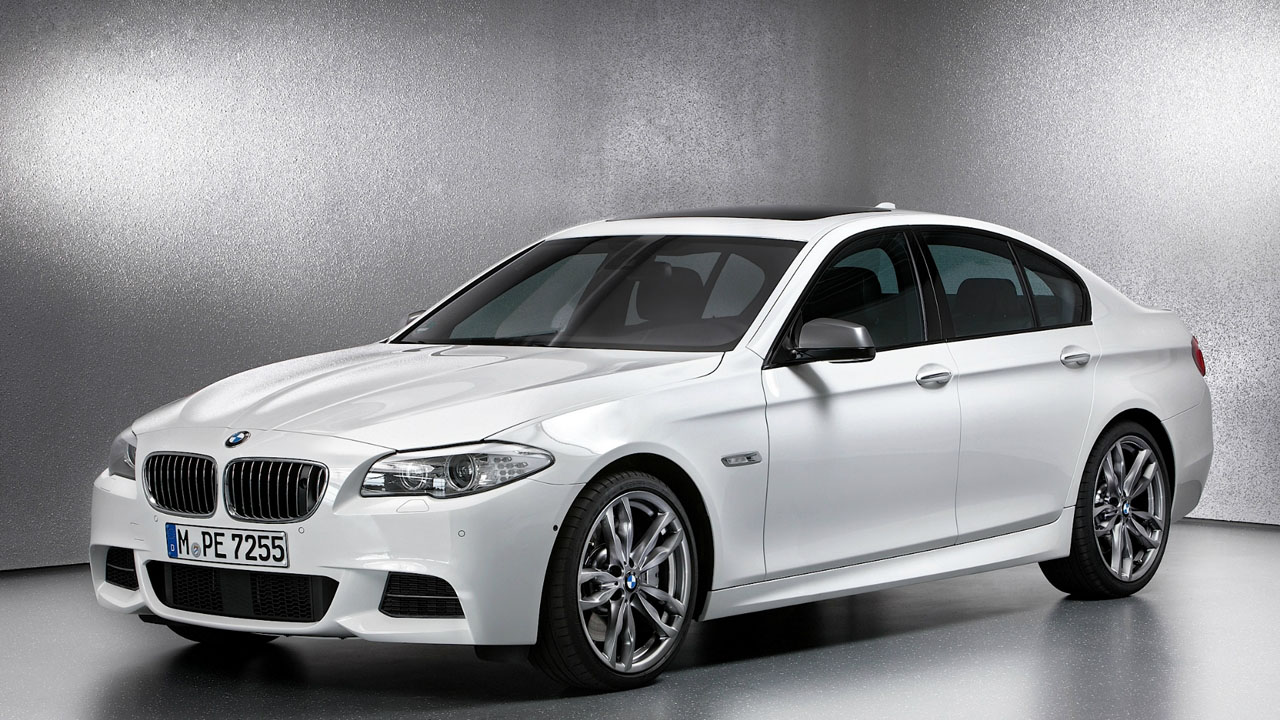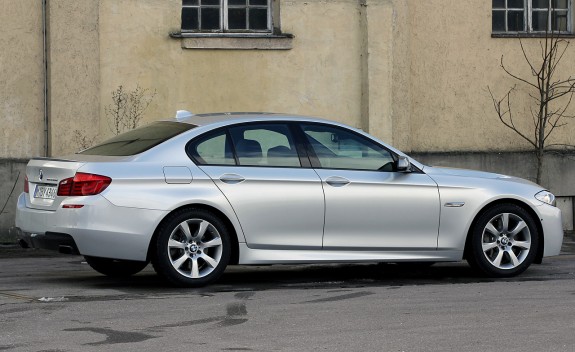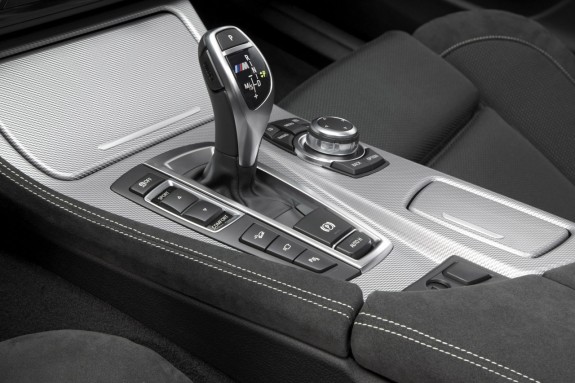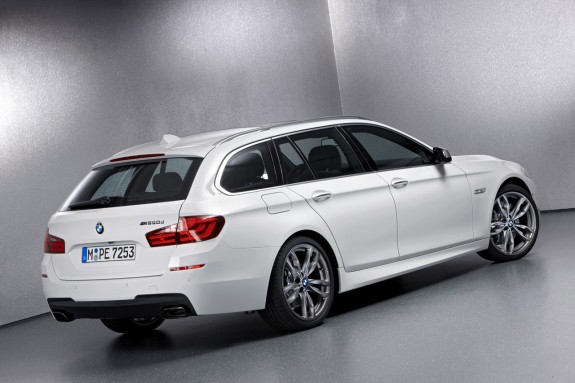Forbidden Fruit: BMW M550d xDrive

Peak oil and global warming have made this millennium a sensitive one for car enthusiasts. Even huge racing organizations like F1 and ACO must walk a fine line, promoting speed and competition while maintaining a green image. That’s why I’ve been an avid supporter of diesels: they can produce massive acceleration while keeping emissions and fuel consumption very low. BMW supports this concept by producing the BMW M550d xDrive. The M faithful say a diesel car has no right to receive the vaunted badge, but I totally disagree.
Based on the BMW F10 5-series chassis, the big news about the M550d is the engine. The 3.0L inline-six makes news by being the first diesel to be tuned by BMW’s M division. The triple-turbocharged mill produces 376HP and a staggering 546lb-ft of torque. Reflect on those figures for a little and you’ll see how amazing they really are: it produces nearly as much horsepower as a E39 M5 (400HP 4.9L V8), and more torque than my 2000 Ford F-250 7.3L V8 turbodiesel (525lb-ft). The 8-speed automatic and xDrive help propel the car to 60MPH in 4.7 seconds – 0.1s quicker than the E39 M5, by BMW’s own estimates. No manual-based transmission (3-pedal or M-DCT) is expected, due to its xDrive AWD system.
Being a diesel, the engine is also vastly more efficient than its counterparts. For example, the 400HP BMW 550i is rated at 27.2MPG combined in the UK (remember – imperial gallons, and Euro test cycle explain the extremely high figure). Despite having the xDrive system not present in the UK-spec 550i, the M550d is rated at 44.7mpg – 64% better than the 550i. Converting it to US gallons and the EPA test cycle, we expect it would achieve between 28-30MPG combined – between a Honda Civic and a 4-cylinder Honda Accord. That’s pretty amazing for a 4,300lb saloon.
The M division also brings some of its other expertise to the table. M-sport aero bits are standard kit on the M550d, making the car look appropriately aggressive. The springs and dampers have been upgraded to more sporty units, while the brakes have been borrowed from the 550i. Higher-spec wheels and tires help the xDrive system keep the car on the road. The interior is upgraded with sport seats, better leather, and miscellaneous trim to make it feel like a more special place.
That’s why I don’t understand why the M fans lament this vehicle. How is it possible to hate a vehicle that surpasses super-sedans of only a decade ago? Some may argue about only providing an automatic transmission, or perhaps that diesels weigh more, or that the diesel only revs to 5400RPM and produces peak power at a low 4000RPM. However, the European M5 doesn’t offer a clutch pedal either – its M-DCT dual clutch transmission is fully automated and the driving experience is very similar to a full automatic with paddle shifters. Regarding weight, this diesel super-sedan weighs 44lbs less than an M5, so there is no argument there! As for the low RPM’s, why does it matter where or how power is produced? With an 8-speed transmission, there are enough gears to fully utilize the power in every situation. In fact, making power at high RPM’s is detrimental to the daily driving experience – the power is less usable and comes attached with more wear, more noise, and more vibration.
The only downside? Price. Some guessing is required, but in Germany, the vehicle is priced to split the difference between the ActiveHybrid5 and the M5. The hybrid 5 starts around $61K in the US, with the M5 expected to come in near the $100K mark. Hence, the M550d would likely cost around $80,000 – a steep price for a wonderful performance sedan that will join the ranks of the AMG Hammer and the original M5 as super-sedans that were ahead of their time.
Sources: BMW NA, BMW UK, BMW Germany, BMW Blog, Inside Line, Top Gear, AutoBlog




